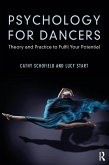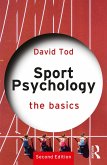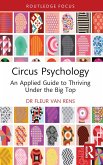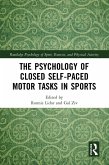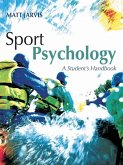The book explores why dance is so important in many people's lives: as a form of fitness, a profession, or visual entertainment. Each chapter then examines a different aspect of psychology related to dance in an applied context. Self-perception is examined as dancers are under great scrutiny; a grounded sense of self will ensure a positive perception of self-worth and body image, and suggestions are made as to how a healthy and motivational climate can be created. The book also places an emphasis on how cognitive skills are as important as technical skills, including the ability to learn and recall steps and choreography as efficiently as possible. Social factors are related to the dance context, with a discussion of effective leadership and communication skills and the importance of group cohesion. Finally, there is a review of the impact of emotions on dance practice and how best to manage these emotions.
Each chapter reviews important psychological theories, offering practical suggestions on how they can be applied to dance practice. Psychology for Dancers is an invaluable resource for students, professionals, and teachers of dance.
Dieser Download kann aus rechtlichen Gründen nur mit Rechnungsadresse in A, B, BG, CY, CZ, D, DK, EW, E, FIN, F, GR, HR, H, IRL, I, LT, L, LR, M, NL, PL, P, R, S, SLO, SK ausgeliefert werden.
Psychology for Dancers is a very clearly written text book, ideal for the student dancer and teacher. Taking us through different psychological theories of performance specific to dancers, students will be able to easily navigate the book. Written in a style that is accessible, Schofield and Start outline basic theories, such as motivation, skills acquisition and self-perception. These are theories that are key to performers being able to understand what creates a healthy and successful dancer. As such, this is a very useful addition to the study of dance performance. Dr. Sara Houston, Department of Dance, University of Roehampton, UK



